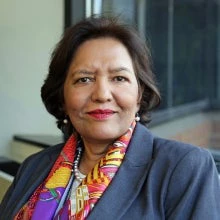 Eastern Caribbean Countries, regional bodies and the World Bank agree to strengthen the digital economy in the region
Eastern Caribbean Countries, regional bodies and the World Bank agree to strengthen the digital economy in the region
The Caribbean has been at the forefront of the resilience-building agenda. For countries in the region, most of them Small Island States located in the path of strong and recurrent hurricanes, climate change adaptation is a matter of survival. The passage of Hurricane Dorian in 2019 is a stark reminder of this vulnerability.
But their location and size can also be turned into an advantage. In the Eastern Caribbean Currency Union (ECCU) countries, with population raging from around 5,000 to around 180,000 people, and being in close proximity to North American markets, economic transformation through digital technology can be quickly turned into a reality.
Relying on the warm weather and paradisiac beaches that make them popular tourist destinations, these islands enjoy upper middle-income status despite pockets of poverty and high climate vulnerability. However, the ECCU countries are lagging on key dimensions of the digital economy, despite having had a head start due to their universal primary and secondary education coverage.
Around 40% of the Caribbean Small States population still lacks access to the internet, and affordability remains a challenge even for those connected. The regions also perform below peers in terms of their digitization of public services, as shown by the United Nations e-Government Development Index rankings.
Eastern Caribbean Countries are lagging on key elements of the digital economy:

References: Green: performing; yellow: performing with gaps; red: lagging
This is a critical gap for countries looking to build resilience against natural disasters. The digital economy is expected to reach 25% of global GDP in less than a decade, making it one of the main sources of growth and job creation of our time. Moreover, studies show a significant positive relationship between digital technology adoption and GDP growth.
Many developing countries have made ambitious strides to take advantage of these opportunities. In fact, many low to lower middle-income countries have embraced digital technologies to transform public services and reduce transaction costs for their citizens.
In Kenya, for example, 73% of individuals over the age of 15 had a mobile money account in 2017, thanks to mobile phone-based money transfer and microfinancing services such as M-Pesa. Importantly, households using M-Pesa services are more resilient to income shocks as they can more easily receive remittances, save more money and access short term credit.
Digital ID systems have also yielded important results. In Botswana and Nigeria, for example, biometric enrollment and audit of pensions and social grants have resulted in substantial savings by identifying and reducing duplicate records and deceased beneficiaries. In Pakistan, over a decade ago, possession of a digital ID card was made mandatory for receiving social benefits payments under a women-focused benefits program. Today, over 5.4 million beneficiaries receive payments through this Digital ID system. Bangladesh’s Grameen Bank stands out as a pioneer in using the cell phone in the late 1990s– at a time when it was a technological novelty –under its rural microcredit program. The ECCU countries are partnering with the World Bank to launch a Digital Transformation Program for the Eastern Caribbean. This regional partnership was kicked off with a workshop co-hosted by the Eastern Caribbean Central Bank (ECCB) and the World Bank earlier this year.. This was the first time ever such a comprehensive and holistic dialogue on the topic took place between the World Bank and regional/country partners.
The workshop brought together senior policy makers from the ECCU countries, representatives from regional bodies such as the ECCB and the OECS, and regional technology regulators to discuss an action plan to boost the digital economy in the region.

Senior Caribbean policy-makers and World Bank management discuss how to implement a Caribbean Digital Transformation Program. From left to right: Hon. Timothy Harris (Prime Minister of St. Kitts and Nevis), Axel van Trotsenburg (Regional World Bank Vice President for Latin America and the Caribbean), Timothy Antoine (ECCB Governor)
The outcome was a clear commitment to turn the Eastern Caribbean region into a leader in the production and use of relevant digital services. This will be achieved by partnering with the World Bank to strengthen key areas of the digital economy such as: (i) digital infrastructure; (ii) digital platforms; (iii) digital financial services; (iv) digital entrepreneurship; and (v) digital skills and literacy. This engagement will build on the ongoing Caribbean Regional Communications Infrastructure Program, supporting the deployment of over 1,200 km of terrestrial and submarine fiber optic cables to strengthen digital connectivity in select Eastern Caribbean countries. It also complements the Grenada Digital Governance for Resilience project, approved by the World Bank Board in August 2019. The first Caribbean project of this nature, it seeks to enhance the efficiency, usage and resilience of select government services in Grenada.
The Caribbean Digital Transformation Program will strengthen the foundational elements of the digital economy:

While specific interventions will be tailored for each country, the countries agreed to follow a regional approach to unlock cost savings through economies of scale and harmonized regulatory frameworks. The resulting efficiency gains and larger markets would also serve to maximize private sector investments, which will be critical for the success of the Caribbean Digital Transformation Program.
Lessons from experience show that a regional initiative needs a regional champion. Therefore, the strong commitment of the ECCB and the Organization of Eastern Caribbean States Commission to lead the regional agenda was another critical outcome of the workshop. As ECCB Governor Timothy Antoine expressed during his closing remarks: participants came to the workshop knowing that they need to boost the digital economy in the Eastern Caribbean, and they left knowing that they can.



Join the Conversation